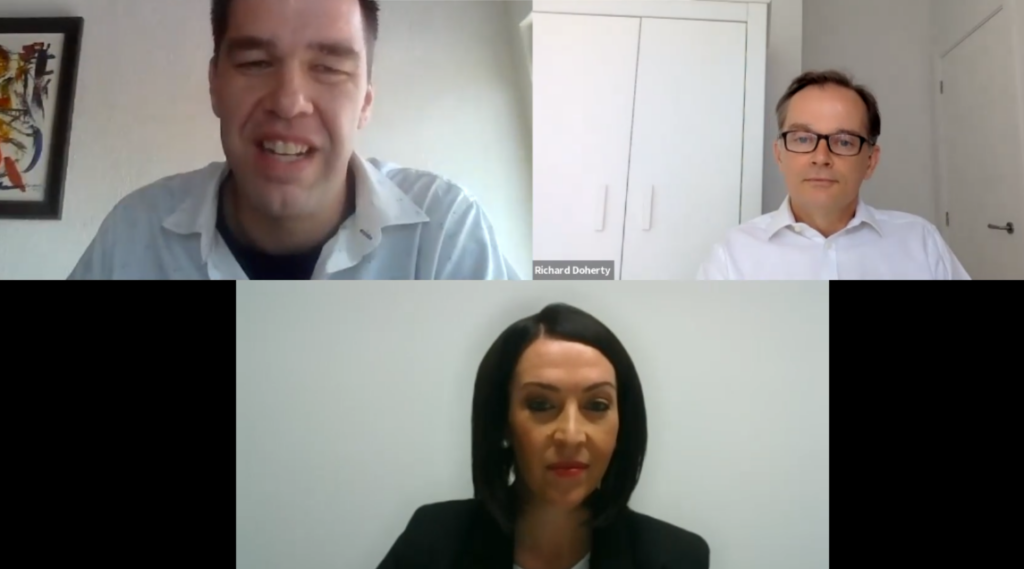Curated, personalised experiences keep employees engaged and motivate them to bring their best selves to work.
Employers need to shapeshift, with intelligent listening becoming a key part of data collection to gain deep insight into employee expectations. This will help companies to adapt to the future world of work and attract and retain multi-generational talent.
This is the reason that a recent webinar, sponsored by Workday, looked at employee experience as a core part of the organisational strategy.
Entitled Great Expectations, the webinar revealed new research from 150 million employee survey responses across 160 countries, and 30 million employee comments which were used for the recent Peakon’s Employee Expectations Report.
Richard Doherty, senior director of Solution Marketing at Workday, which recently acquired Peakon, took attendees through Maslow’s hierarchy of needs using the employee lens.
“At the bottom of the hierarchy is the employee engagement, where the basic human resources self-service needs are in place. Once those needs are met, we move on to the next level of empathy. This talks to psychological safety like providing benefits for healthcare, listening to employees and acting on what you hear. The third level up is embracing the employee, making them feel a sense of belonging and community, which include diversity, equity and inclusion as key metrics and talks to the analytical ability within HR,” he explained.
Richard added, “From there, the next level to build on is empowering employees to manage their careers. HR technology plays a key role here in terms of talent management, feedback, rewards and learning. At the apex of the Maslow pyramid as it relates to employees, is energising employees to bring their best self to work and maximise their potential. This talks to having data-driven technology that creates a contextual experience.”
Intelligent listening
Looking at employees’ needs in this manner allows for a better understanding of what motivates individuals within an organisation. Getting it right will result in a remarkable employee experience, although Richard admis that it is not an easy journey for companies to undertake.
It is within this context that the case for intelligent listening is made.
“Engagement is one of the key metrics that organisations try to measure as it is a leading indicator of employee attrition. Annual employee satisfaction surveys are dead. Employee voices have been elevated over the past 12 months. The world is changing and we need to be constantly listening to sentiment, what employees are thinking and feeling on a continuous basis,” he added.
This is where Peakon’s aptly named Heartbeat report highlighted four key areas, arising from its wide-ranging data sets, that are top of mind for employees.
They are:
- Diversity, equity and inclusion: The conversation around racial equality has more than doubled. Gender equality also remains top of mind, with employees wanting organisations to be more equitable, diverse and inclusive. Otherwise, employees will not feel embraced in the workplace.
- Health and wellbeing: The negative effects of the pandemic have been compounded with each lockdown. Although mental health was the most dominant wellbeing concern during the early stages of the pandemic and still remains high, there is a notable increase in concern around financial wellness, with physical wellness being relatively small in comparison
- Flexible working: Employee comments increased by 125 percent compared to the previous year. Managers had to learn how to manage virtually and employees struggled with work life balance. Caring concerns peaked during lockdown with the biggest impact being on women.
- Growth: There was an initial surge as the pandemic hit in employees picking up new skills and adapting but across the year, professional development has stagnated.
“There are no major surprises in these findings. The difference though is that is backed by data,” Richard noted.
The data has certainly translated into real life examples, with Nicola van Tonder, Zutari’s HR operations manager, explaining that technology supporting employee initiatives has been a game
changer for the company.
“Last year, we were demerging from the global business, rebranding, managing the impact of Covid and relocating offices – all within pretty much the same period. It was massive change and we had to focus on caring and ensuring business continuity,” she said.
Integrated
The feedback from numerous engagement surveys was used to update systems and align HR practices, with intelligent listening being used to meet employee expectations on a real-time basis.
“With psychological safety for example, we set up an HR care call centre mainly for employees who had no access to computers during hard lockdowns. HR checked in with all employees throughout all levels of the organisation. The feedback we received certainly overlapped with the findings of the research,” Nicola said.
In this way, the pandemic gave Zutari an opportunity to review its practices. “Flexibility is not only about work-from-home. It’s also about working smarter, time, creativity and recognising that work and life have fundamentally changed,” she added.
On a practical level, an integrated technology solution has resulted in changed employment contracts and better utilisation of people and their skills.
“We have moved to visual employment contracts. By removing the legal jargon and including illustrations, the word count has reduced from 4,000 to 400. We have also removed paper work from processes for all requests like leave, forms, etc. This is combined with the HR data and the resource planning team data. This enables managers to better utilise their teams,” Nicola explained.
In this way technology was harnessed to foster communication, provide personal touches and moments of magic to create energised, curated and personalised employee experiences.











